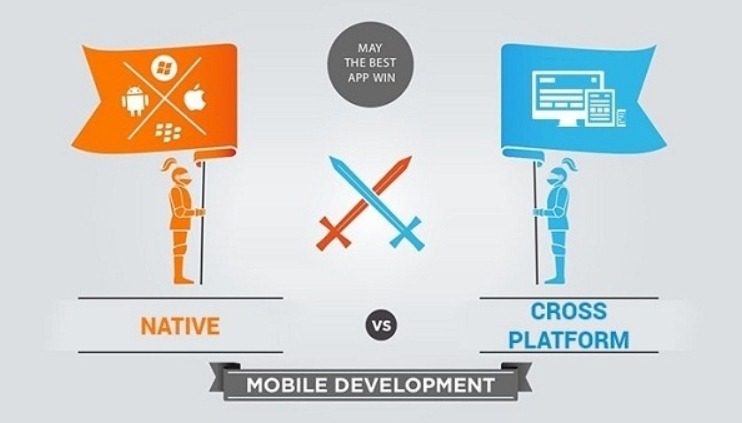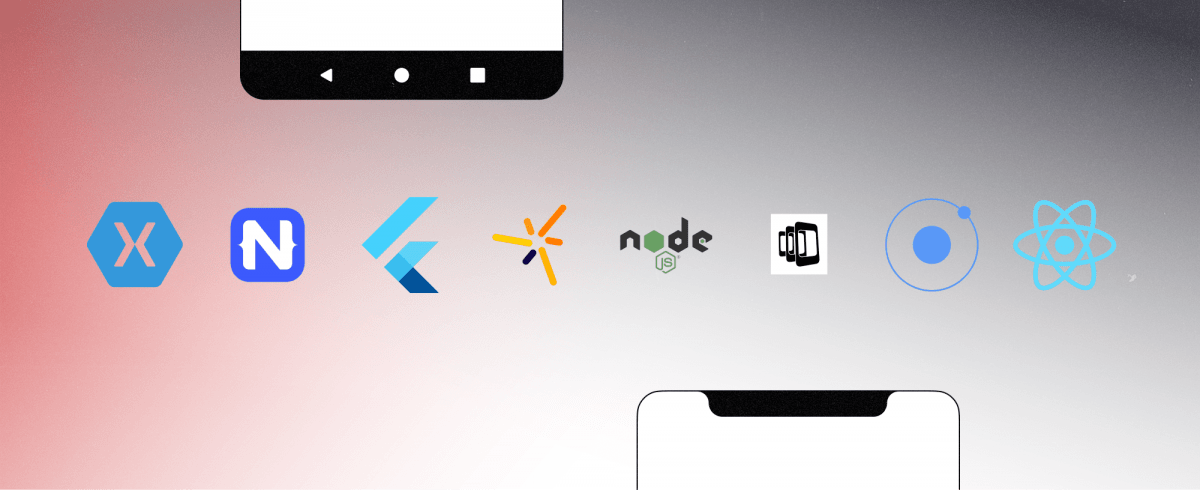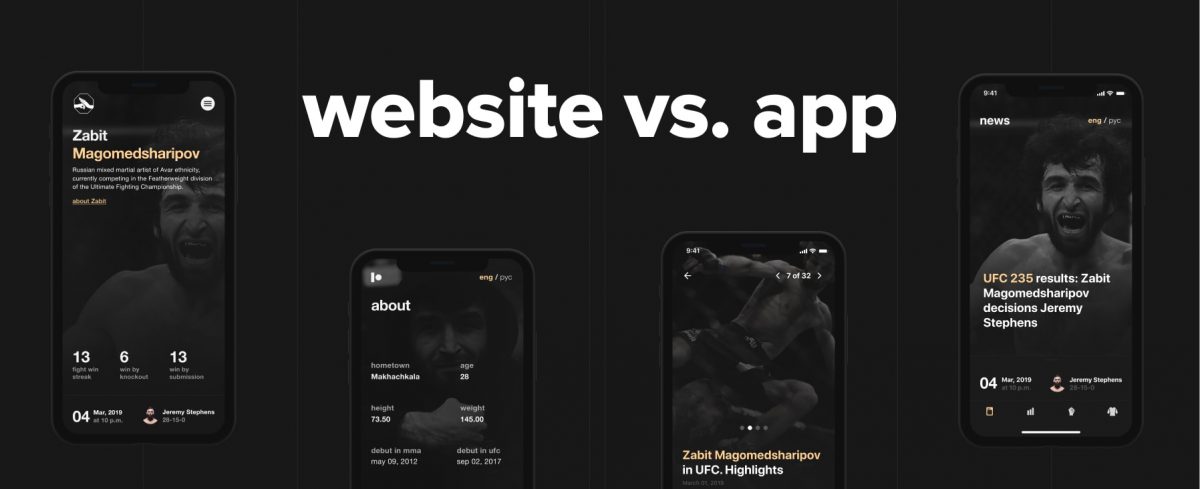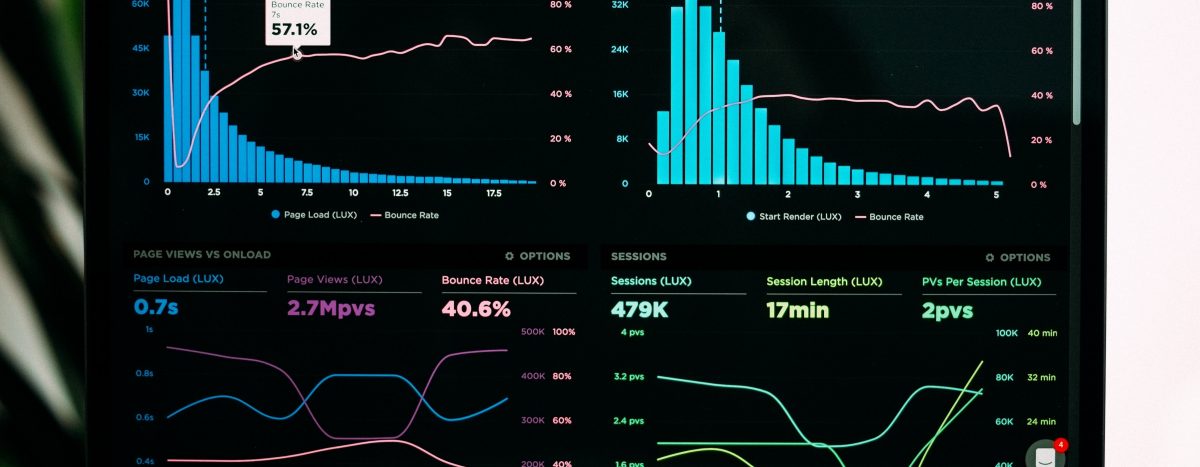Nowadays, 99.6% of all smartphone apps run on either iOS or Android. The two basis businesses build apps on is: using them as a channel to raise brand awareness, or the app being the business in itself. It’s important to distinguish between these two as what you choose could either save you money or trouble.
There are two ways one could go about developing a mobile app: native or hybrid. These two methods vary in programming language and will play a significant role in how the mobile app will be received on each platform.

Source: Quora
Hybrid apps or native mobile apps: what’s the difference?
Native apps
Native apps are developed with platform-specific programming languages. The particular platform welcomes these languages with ease; if the code is correct there will be no miscommunication. For Android it’s Java, for iOS it’s Objective-C or Swift. Apps using these languages are built from the ground up with the intention to only perform on their specific platform.
Advantages of developing a Native App:
- Most Natural User Interface (UI) – When developing a native app, you can take advantage of specific tools for creating interfaces and interactions that are at home with the platform’s aesthetic. This translates into an experience that is familiar to the user, encouraging them to keep using the app.
- High Performance (UX) – If the code is sound, flawless performance gives native apps a huge edge. Their native code speaks directly to the platform’s hardware and software without the need to be translated in any way; this results in response times that are not realized by hybrid apps.
- Platform Features – Certain apps have functions that work off of customized preferences. For example, a user that has bad eyesight can adjust the overall font-size displayed on the platform. If the app is native, this enlarged font would be applied to the app as well.
- Development Tools – Native development is much more generous than hybrid a.k.a cross-platform. Native tools are greater in abundance and ability. They enable better testing and debugging functionality.
Disadvantages:
- Time consumption – Since the same code can’t be used for more than one platform, developers will need to spend more time translating, in many cases rewriting the code.
- Human Resources – The average human is only truly proficient in one written/spoken language. Developers are the same way. To develop native apps for multiple platforms, businesses would need to hire more than one developer. Individual developers generally come as specialists and if one is an expert in iOS, chances are he doesn’t have the know-how to successfully code an Android app.
Hybrid Apps
Of course, everyone wants to develop their application as quickly and cheaply as possible. This is where the hybrid app development shines. Hybrid apps are developed with code that can be later tailored to work with the OS of a given platform. This sounds great and all but almost too good to be true. And in many cases, it is in fact too good to be true. As life has taught us, quick and cheap don’t always equal quality.
Advantages of hybrid app development:
- Timely – Unlike native apps, hybrid apps use a single codebase which one could apply across a variety of platforms. You’re essentially cutting dev-time in half.
- Exposure across markets – Choosing a specific platform isn’t even a question here. Your hybrid app will be exposed to both the Android and iOS markets.
- Wallet-Friendly – Fewer developers per project are needed. Less human resources equal more money saved.
- Ease of update – In today’s market, many app publishers will launch updates up to four times a month. Maintenance can be costly but since the updates will affect multiple platforms at once, these costs are kept to a minimum.
Disadvantages:
-
Performance Issues – This is no doubt the largest issue looming over hybrid apps. The computing power of smartphones is relatively small compared to desktops. The rendering of HTML5/CSS UI components present in hybrid apps takes a lot of GPU/CPU resources. This decreases the app’s response times resulting in performance delays or even causing the app to freeze altogether. These delays are noticeable when scrolling and in animations.
It is also not uncommon for an update in a platform’s software to render your app unusable. The frameworks for creating hybrid apps are not so flexible and your app may not be so susceptible to a system update, resulting in a ton of angry customers.
-
Alien – As said above in the “unusable after update” case, hybrid apps don’t integrate with their platforms as well as their native counterparts. Nowadays many platforms offer useful customizations that can be tailored to the user, such as the font-size example. This leaves the user with an app that is unable to meet its full potential. In many cases, it’s limited to what you what is before you and may even hamper the ability to make proper use of your device’s camera or microphone.
Which One Should You Choose?
The answer to this question is not carved into stone. As a top app development company in NYC, we can say that it is about whatever fits the business. Like I’ve mentioned before there are two types of businesses that are looking to get into the app business: the ones who make an app for the simple sake of advertisement, and the ones whose bread and butter is the app itself. If you’re the latter, by all means, native is the way to go; the app is your life source after all. If you’re the former, perhaps you can get away with quick and cheap. But if the quality is still of significant importance to you then I would rule out hybrid.




